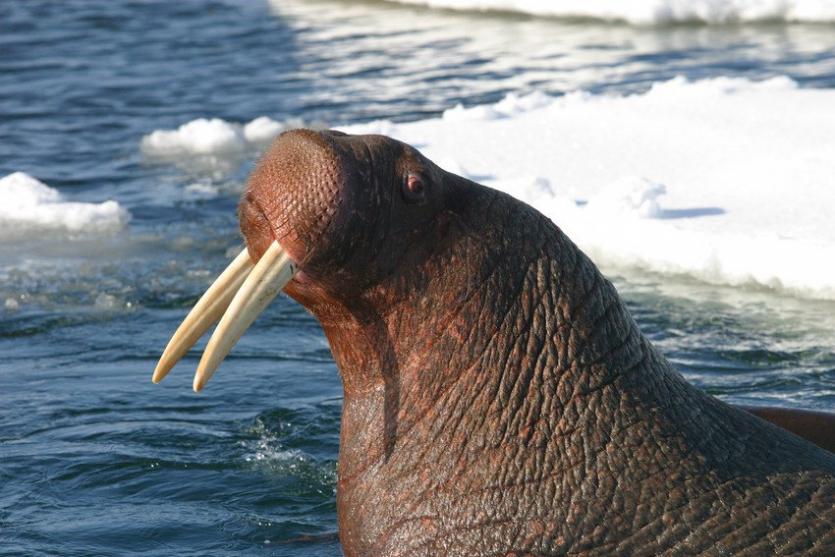The Pacific walrus is threatened by climate change. Photo:USFWS
By Patryk Krych | The World Daily | JUNE 4th 2021
On Thursday, it was ruled in the US Federal Appeal court that a Trump administration policy had failed to provide sufficient protections to Pacific walruses, by denying them protections under the Endangered Species Act.
As the Arctic sea ice is gradually continuing to diminish, more and more animals that are reliant on the sea ice are being given the status of ‘threatened’ or ‘endangered.’ Though plenty of such Arctic animals like polar bears and some species of seals have been granted a listing as ‘threatened’ because of this sea-ice loss by the Trump administration, Pacific walruses never received this status.
Back in 2011, the United States Fish and Wildlife Service had come to the conclusion that there was plenty of reason to warrant Pacific walruses as ‘threatened,’ placing them under the wildlife protection law and affording them better protections. This was decided under the Obama Administration.
The Pacific walruses were therefore put in line for formal listing into these protections, but that had changed in 2017 under the ruling of the Interior Secretary at the time, Ryan Zinke, who’d reversed the listing of the US Fish and Wildlife Service. This was done under the claims that the walruses circumstances did not call for a ‘threatened’ status.
“The essential flaw in the 2017 decision is its failure to offer more than a cursory explanation of why the findings underlying its 2011 decision no longer apply,” wrote a three-judge panel, in its 20-page opinion on the matter, after the case had been brought to the 9th US Circuit Court of Appeals.
At the time, it had been asserted by the agency that the walruses weren’t necessarily threatened due to having supposedly adapted to the conditions of melting sea ice, thus warranting a retraction of protective listing.
This retraction had seen particularly strong support from industrious oil organisations, who had claimed that the listing of walruses as ‘threatened’ would serve only to further hold back energy development within the region.
“The court said, ‘Fish and Wildlife Service, you did one thing in 2011, you did another thing in 2017,’” said Emily Jeffers, an attorney for the Centre for Biological Diversity, a conservation group. “‘That’s the hallmark of agency decision-making, that you have to explain the reasons why you’re doing something. And here you just didn’t explain what you were doing.’”
It was well over a decade ago when the Centre for Biological Diversity had petitioned the US Fish and Wildlife Service to put Pacific walruses on their listing of threatened species.






